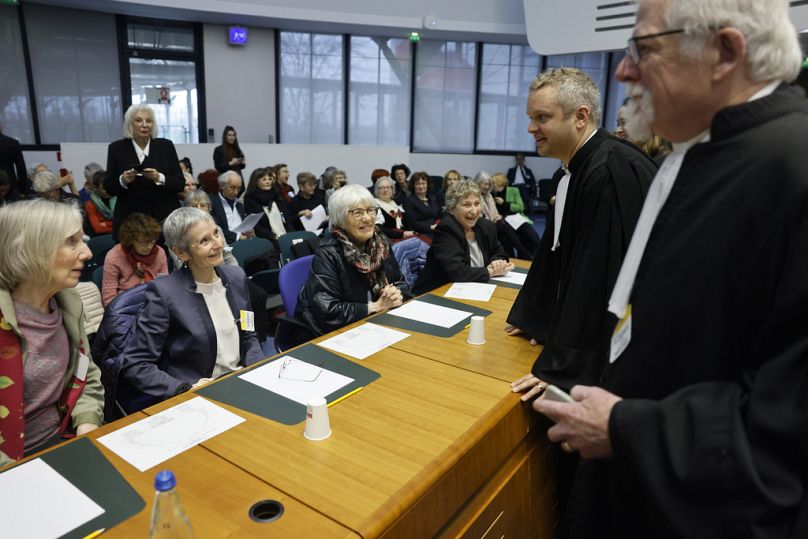Hundreds of millions of Europeans benefit from the convention every single day - sometimes without even knowing it, says the Council of Europe's Secretary General.
The European Convention on Human Rights (ECHR) marks its 70th anniversary on Sunday.
 ADVERTISEMENT
ADVERTISEMENT
 ADVERTISEMENT
ADVERTISEMENT
The landmark international treaty, which protects human rights and basic freedoms in Europe, came into force on 3 September 1953.
Some 46 states - from Iceland to Azerbaijan - are signed up to the ECHR, established by the Council of Europe, an organisation independent from the European Union.
What impact has the ECHR had on Europe?
“Hundreds of millions of people... have benefited from the convention’s protection and continue to do so every single day, sometimes even without knowing it," said the Council of Europe Secretary General Marija Pejčinović Burić in a statement to Euronews.
“Working together with national authorities, following the utter devastation of the Second World War, we have used the convention as a blueprint for building a better Europe, helping to ensure stability and security for seven decades."
The ECHR protects the rights of every citizen within a signatory state, divided into 19 separate articles.
These include the right to a fair trial, respect for family and private life, education and free elections, alongside freedom of thought, expression, assembly and freedom from torture or slavery.
The Council of Europe details more than 200 cases of the ECHR's impact on its website.
Past rulings have helped protect whistleblowers, the victims of domestic violence, people with savings, the environment, children, sexual minorities, religious freedoms, families, the media and medical patients, among many others.
But the treaty is not without its critics.
In 2016, former British Prime Minister Theresa May said the UK should withdraw from the ECHR, arguing it "bind[s] the hands of parliament, adds nothing to our prosperity, makes us less secure by preventing the deportation of dangerous foreign nationals.
"[It] does nothing to change the attitudes of governments like Russia’s when it comes to human rights,” she added.
Is the ECHR under threat?
Britain's government in recent months has again threatened to pull out of the ECHR which it claims stands in the way of its highly controversial crackdown on migration.
Besides "worrying and morally abhorrent" implications for migrants, Miriam Ronzoni, Professor of Political Theory at the University of Manchester told Euronews recently that UK citizens themselves could lose the most in the event of their country's departure.
"One thing the government and Tory backbenchers in favour of leaving the ECHR are conspicuously silent about is that most cases brought to the ECHR are cases about human rights violations committed by states against their own citizens."
Only two countries have ever left the treaty: Greece when it abolished democracy and imposed a junta in 1969 - Athens later rejoined when military rule ended in 1974 - while Russia was expelled following its invasion of Ukraine in 2022.
“The horrendous events of the last 18 months show what can happen when states turn their back on those values and just how quickly the achievements of the last 70 years can be undone," said Council of Europe General Secretary Burić.
“Now, more than at any point in the Convention’s history, the people of Europe need our nations to unite behind the Convention system and its values... for the benefit of us all, and the generations to come.”
Britain's wartime leader Winston Churchill was a staunch advocate of the ECHR, believing it played a key role in protecting citizens from cruel and inhumane treatment by despotic governments within continental Europe.
The UK was the first signatory to the ECHR and British lawyers played a vital part in drafting it up.
How is the ECHR enforced?
The ECHR is enforced by the European Court of Human Rights (ECtHR), an international court based in Strasbourg, France. Lawyers from across signatory states operate there.
Again, it is independent of Brussels.
Any person who feels that their rights enshrined in the ECHR have been violated by a state can take their case to court.
If judges at the ECtHR find that someone's rights have been violated, they can rule against a state and order them to pay compensation.
The member state may also have to take steps to ensure the same thing does not happen again.
However, the court is not empowered to overrule national decisions or annul national laws.











